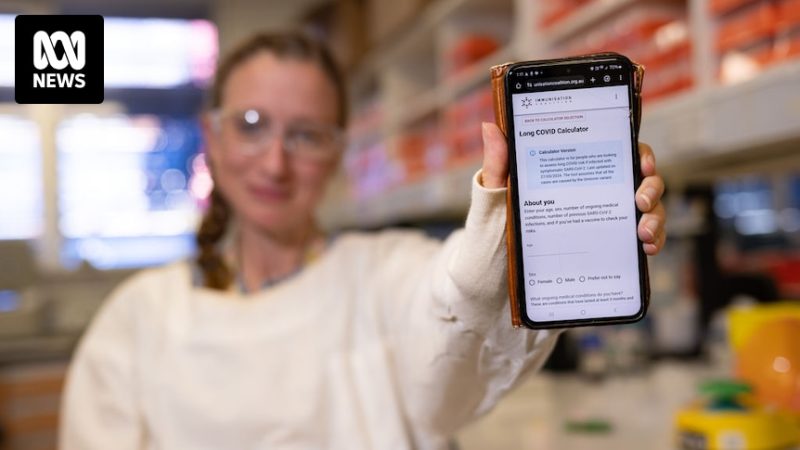Researchers launch long COVID risk calculator to encourage early treatment

In short:
Immunologists have created an online calculator that estimates a person’s risk of developing long COVID.
Long COVID symptoms can include fatigue, brain fog, and shortness of breath.
What’s next:
Associate Professor Kirsty Short says much more research is needed into the diagnosis and treatment of long COVID.
A new online calculator can estimate a person’s risk of developing long COVID symptoms such as brain fog, fatigue, and shortness of breath.
The calculator asks a person’s age, sex, medications, infection history, and vaccination status to estimate risks of post-acute sequelae of COVID-19, colloquially known as long COVID.
It was built by researchers from the University of Queensland, Flinders University, University of Sydney, Queensland University of Technology, and the Immunisation Coalition.
University of Queensland Associate Professor Kirsty Short said the diagnosis and treatment of long COVID was still in its infancy.
However, Dr Short said the latest research suggested it was far more prevalent than previously believed.
The COVID-19 researcher said the current literature suggested around 10 per cent of all humans had at least one long COVID symptom.
“It’s a really, really big problem and it’s something that we’re only starting to appreciate,” Dr Short said.
“It’s an incredibly debilitating disease causing more than 200 symptoms across 10 different organ systems and can affect individuals quite differently.”
Early intervention key
Dr Short said each time a person was infected with COVID-19 their chance of developing long COVID increased significantly.
Women are more likely to suffer long COVID, as are patients with certain comorbidities as well as the unvaccinated.
However, Dr Short said the risks could be decreased significantly by providing anti-viral treatments to patients in the acute stage.
John Litt, a co-lead on the calculator project, said it was important to know a person’s risk levels so early intervention could occur.
The Flinders University Associate Professor said the right treatments could reduce both the severity of long COVID as well as the duration.
“While many adults don’t see COVID-19 as a big issue now, many are concerned about getting long COVID,” he said.
“The chance of suffering long COVID increases with every bout of COVID-19 a person catches.”
Get local news, stories, community events, recipes and more each fortnight.








